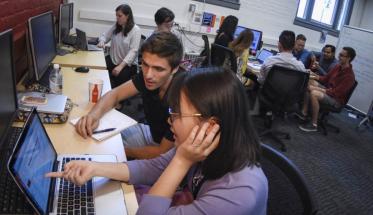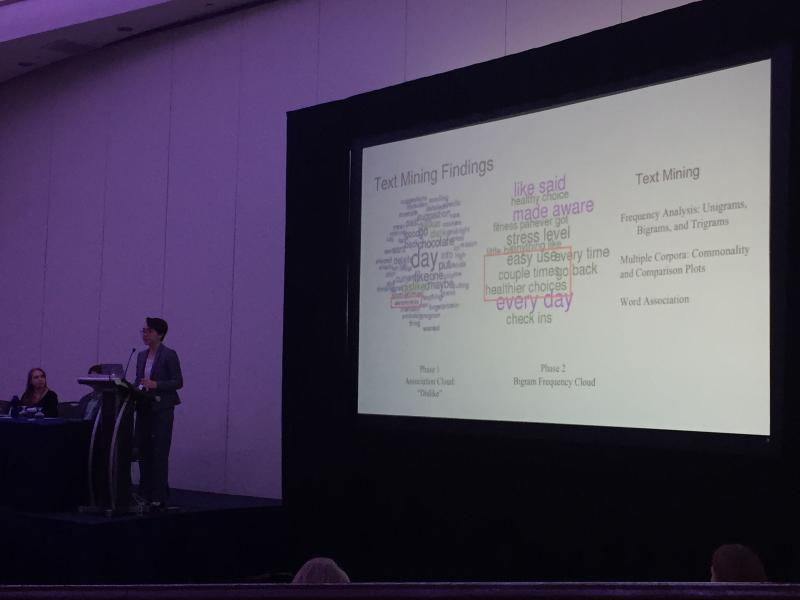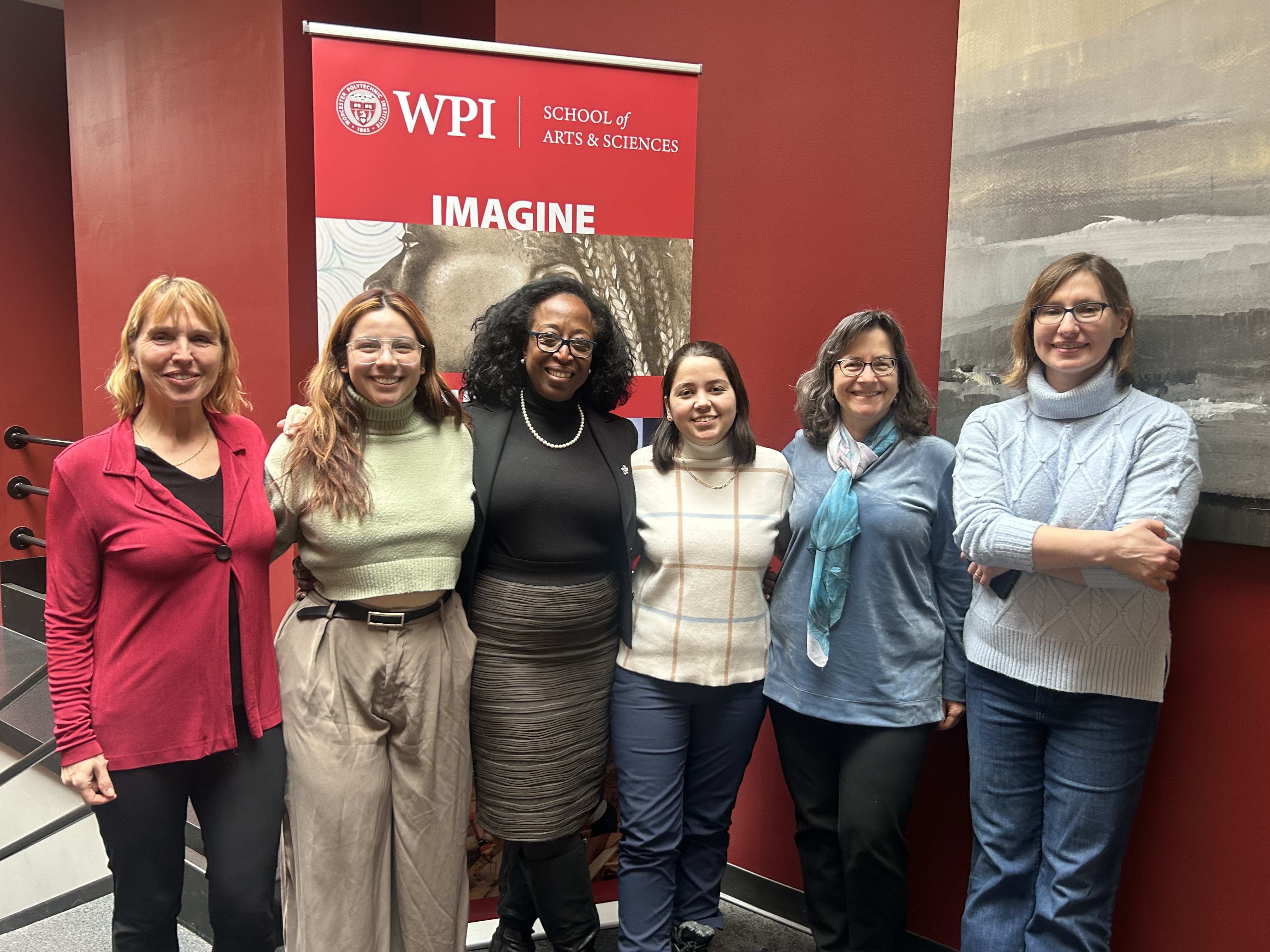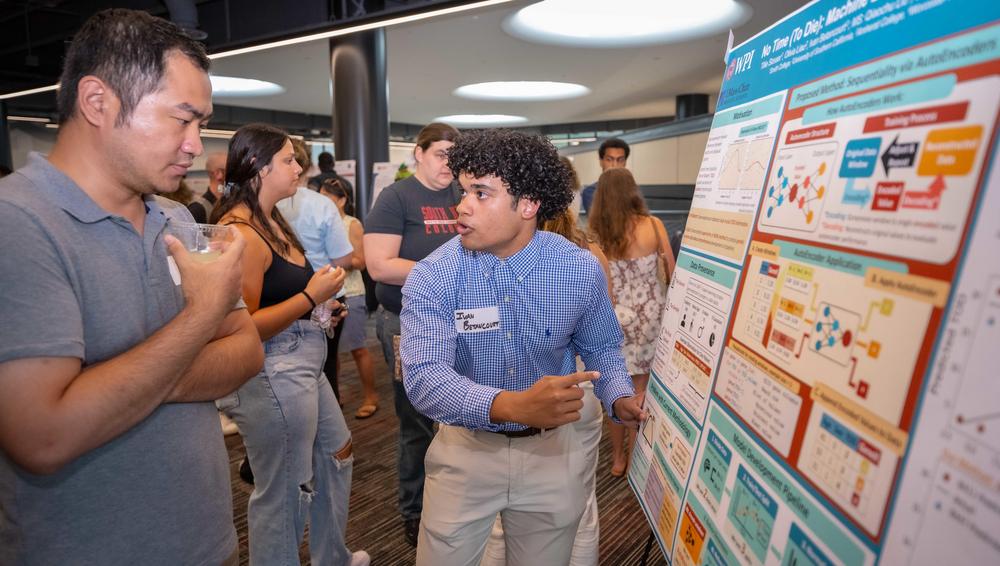Ten undergraduates from colleges and universities across the country are spending the summer at WPI working alongside data scientists, conducting groundbreaking research that could someday impact critical facets of society from healthcare to mobility.
As part of a $356,000, three-year program funded by the National Science Foundation, the Data Science REU (Research Experience for Undergraduates) internship gives students hands-on experience with faculty-designed research, working alongside those professors and their graduate students.
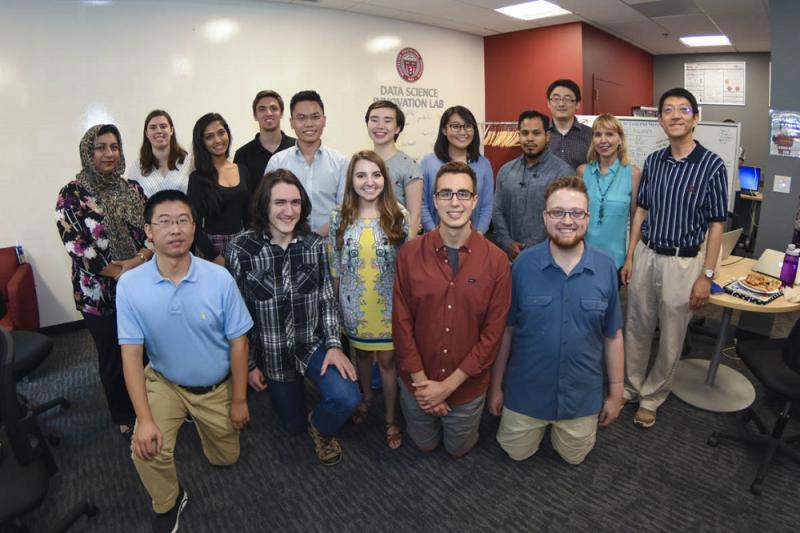
This year’s REU program participants.
“These are not made-up projects for classroom work or for training purposes only,” says Professor Elke Rundensteiner, principle investigator (PI) on this REU, and director of the Data Science program, “Rather, these are authentic projects in pursuit of advancing science and technologies to solve pressing societal problems. Undergraduate researchers are embedded directly into these existing research teams. As such, it’s a win-win for both sides.”
This is the second of three years of funding in the original grant. NSF supports similar programs at other universities; these REU positions are coveted—well over 400 students applied to this WPI site last year to compete for 10 slots.
The students, who live on campus during the 10-week program and receive a stipend, work at the Data Science Innovation Lab. In teams of two they are assigned to five research projects.
One of the projects initiated last fall and directed by Rundensteiner and Xiangnan Kong, uses machine learning techniques to early predict hospital-acquired infections during a patient’s stay. Rundensteiner and her team are using computer programs to analyze the smallest details of 12 years of electronic health records from intensive care units at Beth Israel Deaconess Medical Center to look for patterns and any clues to help develop risk factors for a patient developing the Methicillin-resistant Staphylococcus aureus (MRSA) infection. The research is expected to eventually be the framework for supporting health care workers with early warning indicators to lower the risk, prevent the infections, or avoid the spread of MRSA infections.
Their team has already developed a working prediction technique for the clostridium difficile (C. diff) intestinal infection to be published this fall.
"Doctors have tremendous experience, but they simply can’t look at every piece of data from all the patients along their respective stays—inferring patterns and detecting signals hidden in the data. Computers can," she says.
"These are authentic projects in pursuit of advancing science and technologies to solve pressing societal problems. Undergraduate researchers are embedded directly into these existing research teams." -Elke Rundensteiner
The students—a mix of first-years, sophomores, and juniors—not only get to work on a specific task on the project, but they are responsible for presenting their work each week, culminating in a presentation at a research poster showcase symposium at WPI.
They meet with their graduate student mentors nearly daily, while the REU site holds a site group meeting each week led jointly with co-PI Fatemeh Emdad and REU faculty mentors (this year Emmanuel Agu, Lane Harrison, Kong, Yanhua Li, Carolina Ruiz, and Jian Zou). Here the students hone their presentation skills and interact with graduate students and peers, a relationship that Rundensteiner says benefits both sides.
“The undergraduates benefit from having a mentor, and the graduate students get practice in mentoring and guiding others, something they’ll need for their future professional careers,” she explains.
The REU students also participate in the weekly research seminar meetings with the entire WPI data science research faculty and graduate students. Last, they learn about diverse career paths in the field of data science, a highlight of which includes field trips to companies, including National Grid (Worcester), MathWorks (Natick), and Google (Cambridge).
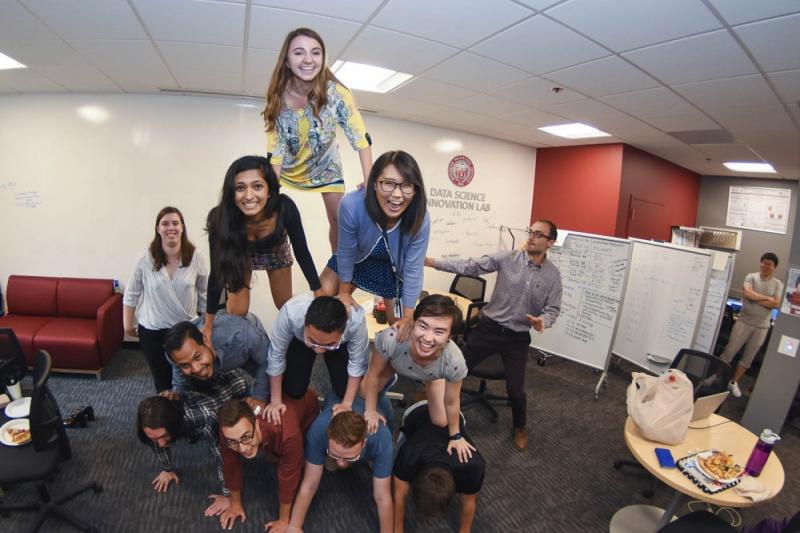
REU participants form a "life pyramid."
“Altogether, these students experience multiple career paths they can take in data science, academia, or working for a company,” Rundensteiner says.
It’s not just the students who benefit from direct experience in cutting-edge research, it’s also an opportunity for WPI to showcase its Data Science program, facilities, and faculty.
“The whole idea behind this grant is for outreach,” Rundensteiner points out. “It’s of tremendous value to WPI to get students from all over the country to come here and experience our state-of-the-art data science program and then go back to their home institutions and talk about it.”
As one of the first programs in the country to offer an interdisciplinary PhD degree program in data science, WPI is looking to spread the word to STEM students about this unique opportunity, she says.
It also creates a professional network for the students, who stay in touch with their professors, graduate students, and peers they meet at WPI to follow up on their research and academic connections.
This year’s cohort is particularly close, Rundensteiner says, evidenced by the “life pyramid” they formed when asked to gather for a group photograph.
“You have to trust each other to do that,” Rundensteiner says with a laugh.
The bonds are something that can carry through into the future as they embark on their careers, she says.
- By Ellen Ishkanian
